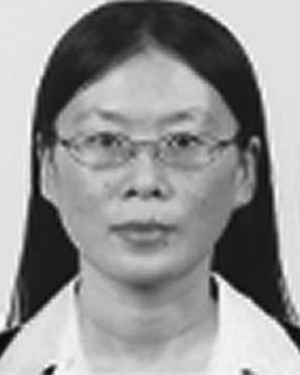Abstract:
Recursive reasoning of the form what do I think that you think that I think (and so on) arises often while acting in multiagent settings. Previously, multiple experiments...Show MoreMetadata
Abstract:
Recursive reasoning of the form what do I think that you think that I think (and so on) arises often while acting in multiagent settings. Previously, multiple experiments studied the level of recursive reasoning generally displayed by humans while playing sequential general-sum and fixed-sum, two-player games. The results show that subjects experiencing a general-sum strategic game display first or second level of recursive thinking with the first level being more prominent. However, if the game is made simpler and more competitive with fixed-sum payoffs, subjects predominantly attributed first-level recursive thinking to opponents thereby acting using second level. In this article, we model the behavioral data obtained from the studies using the interactive partially observable Markov decision process, appropriately simplified and augmented with well-known models simulating human learning and decision. We experiment with data collected at different points in the study to learn the models parameters. Accuracy of the predictions by our models is evaluated by comparing them with the observed study data, and the significance of the fit is demonstrated by comparing the mean squared error of our model predictions with those of a random hypothesis. Accuracy of the predictions by the models suggest that these could be viable ways for computationally modeling strategic behavioral data in a general way. While we do not claim the cognitive plausibility of the models in the absence of more evidence, they represent promising steps toward understanding and computationally simulating strategic human behavior.
Published in: IEEE Transactions on Systems, Man, and Cybernetics - Part A: Systems and Humans ( Volume: 42, Issue: 6, November 2012)

Department of Computer Science, University of Georgia, GA, USA
Prashant Doshi received the Ph.D. degree in computer science at the University of Illinois at Chicago, Chicago, in 2005.
He is an Associate Professor of computer science at the University of Georgia (UGA), Athens, since 2010. from 2005 to 2010, he was an Assistant Professor of computer science at UGA. He directs the THINC lab (
http://thinc.cs.uga.edu) and is a Faculty Member of the Institute for Artificial Intelligence at...Show More
Prashant Doshi received the Ph.D. degree in computer science at the University of Illinois at Chicago, Chicago, in 2005.
He is an Associate Professor of computer science at the University of Georgia (UGA), Athens, since 2010. from 2005 to 2010, he was an Assistant Professor of computer science at UGA. He directs the THINC lab (
http://thinc.cs.uga.edu) and is a Faculty Member of the Institute for Artificial Intelligence at...View more

Department of Computer Science, University of Georgia, GA, USA
Xia Qu received the M.Sc. degree in artificial intelligence from the Institute for Artificial Intelligence at University of Georgia (UGA), Athens, in 2008, where she is currently working toward the Ph.D. degree in the Department of Computer Science. Recently, she received her doctoral candidacy.
She is a Member of the THINC lab, and her dissertation research focuses on computational modeling of human behavioral data.
Xia Qu received the M.Sc. degree in artificial intelligence from the Institute for Artificial Intelligence at University of Georgia (UGA), Athens, in 2008, where she is currently working toward the Ph.D. degree in the Department of Computer Science. Recently, she received her doctoral candidacy.
She is a Member of the THINC lab, and her dissertation research focuses on computational modeling of human behavioral data.View more

Department of Psychology, University of Georgia, GA, USA
Adam S. Goodie received the Ph.D. degree in psychology at the University of California at San Diego, in 1997, and his postdoctoral training at the Max Planck Institutes in Munich and Berlin.
He is an Associate Professor of psychology at the University of Georgia (UGA), Athens, since 2005. from 1998 to 2005, he was an Assistant Professor of psychology at UGA. He directs the Georgia Decision Lab (
http://psychology.uga.edu/g...Show More
Adam S. Goodie received the Ph.D. degree in psychology at the University of California at San Diego, in 1997, and his postdoctoral training at the Max Planck Institutes in Munich and Berlin.
He is an Associate Professor of psychology at the University of Georgia (UGA), Athens, since 2005. from 1998 to 2005, he was an Assistant Professor of psychology at UGA. He directs the Georgia Decision Lab (
http://psychology.uga.edu/g...View more

Department of Psychological Sciences, Georgia College and State University, GA, USA
Diana L. Young received the Ph.D. degree in psychology at the University of Georgia, Athens, in 2010.
She is an Assistant Professor of psychology at Georgia College and State University, Milledgeville, since 2010, and Director of the Georgia College Decision Research Laboratory. Her research focuses on human judgment and decision making.
Diana L. Young received the Ph.D. degree in psychology at the University of Georgia, Athens, in 2010.
She is an Assistant Professor of psychology at Georgia College and State University, Milledgeville, since 2010, and Director of the Georgia College Decision Research Laboratory. Her research focuses on human judgment and decision making.View more

Department of Computer Science, University of Georgia, GA, USA
Prashant Doshi received the Ph.D. degree in computer science at the University of Illinois at Chicago, Chicago, in 2005.
He is an Associate Professor of computer science at the University of Georgia (UGA), Athens, since 2010. from 2005 to 2010, he was an Assistant Professor of computer science at UGA. He directs the THINC lab (
http://thinc.cs.uga.edu) and is a Faculty Member of the Institute for Artificial Intelligence at UGA. His research interests lie in decision making under uncertainty with a focus on multiagent settings, and in the study of human strategic decision making and its computational modeling.
Prashant Doshi received the Ph.D. degree in computer science at the University of Illinois at Chicago, Chicago, in 2005.
He is an Associate Professor of computer science at the University of Georgia (UGA), Athens, since 2010. from 2005 to 2010, he was an Assistant Professor of computer science at UGA. He directs the THINC lab (
http://thinc.cs.uga.edu) and is a Faculty Member of the Institute for Artificial Intelligence at UGA. His research interests lie in decision making under uncertainty with a focus on multiagent settings, and in the study of human strategic decision making and its computational modeling.View more

Department of Computer Science, University of Georgia, GA, USA
Xia Qu received the M.Sc. degree in artificial intelligence from the Institute for Artificial Intelligence at University of Georgia (UGA), Athens, in 2008, where she is currently working toward the Ph.D. degree in the Department of Computer Science. Recently, she received her doctoral candidacy.
She is a Member of the THINC lab, and her dissertation research focuses on computational modeling of human behavioral data.
Xia Qu received the M.Sc. degree in artificial intelligence from the Institute for Artificial Intelligence at University of Georgia (UGA), Athens, in 2008, where she is currently working toward the Ph.D. degree in the Department of Computer Science. Recently, she received her doctoral candidacy.
She is a Member of the THINC lab, and her dissertation research focuses on computational modeling of human behavioral data.View more

Department of Psychology, University of Georgia, GA, USA
Adam S. Goodie received the Ph.D. degree in psychology at the University of California at San Diego, in 1997, and his postdoctoral training at the Max Planck Institutes in Munich and Berlin.
He is an Associate Professor of psychology at the University of Georgia (UGA), Athens, since 2005. from 1998 to 2005, he was an Assistant Professor of psychology at UGA. He directs the Georgia Decision Lab (
http://psychology.uga.edu/gdl/) and is a Faculty Fellow of the Owens Institute for Behavioral Research and Faculty Member of the Institute for Artificial Intelligence at UGA. His research focuses on human judgment and decision making. It encompasses behavioral, neuroscientific, and quantitative modeling methods, and approaches problems that are both basic and translational.
Adam S. Goodie received the Ph.D. degree in psychology at the University of California at San Diego, in 1997, and his postdoctoral training at the Max Planck Institutes in Munich and Berlin.
He is an Associate Professor of psychology at the University of Georgia (UGA), Athens, since 2005. from 1998 to 2005, he was an Assistant Professor of psychology at UGA. He directs the Georgia Decision Lab (
http://psychology.uga.edu/gdl/) and is a Faculty Fellow of the Owens Institute for Behavioral Research and Faculty Member of the Institute for Artificial Intelligence at UGA. His research focuses on human judgment and decision making. It encompasses behavioral, neuroscientific, and quantitative modeling methods, and approaches problems that are both basic and translational.View more

Department of Psychological Sciences, Georgia College and State University, GA, USA
Diana L. Young received the Ph.D. degree in psychology at the University of Georgia, Athens, in 2010.
She is an Assistant Professor of psychology at Georgia College and State University, Milledgeville, since 2010, and Director of the Georgia College Decision Research Laboratory. Her research focuses on human judgment and decision making.
Diana L. Young received the Ph.D. degree in psychology at the University of Georgia, Athens, in 2010.
She is an Assistant Professor of psychology at Georgia College and State University, Milledgeville, since 2010, and Director of the Georgia College Decision Research Laboratory. Her research focuses on human judgment and decision making.View more


